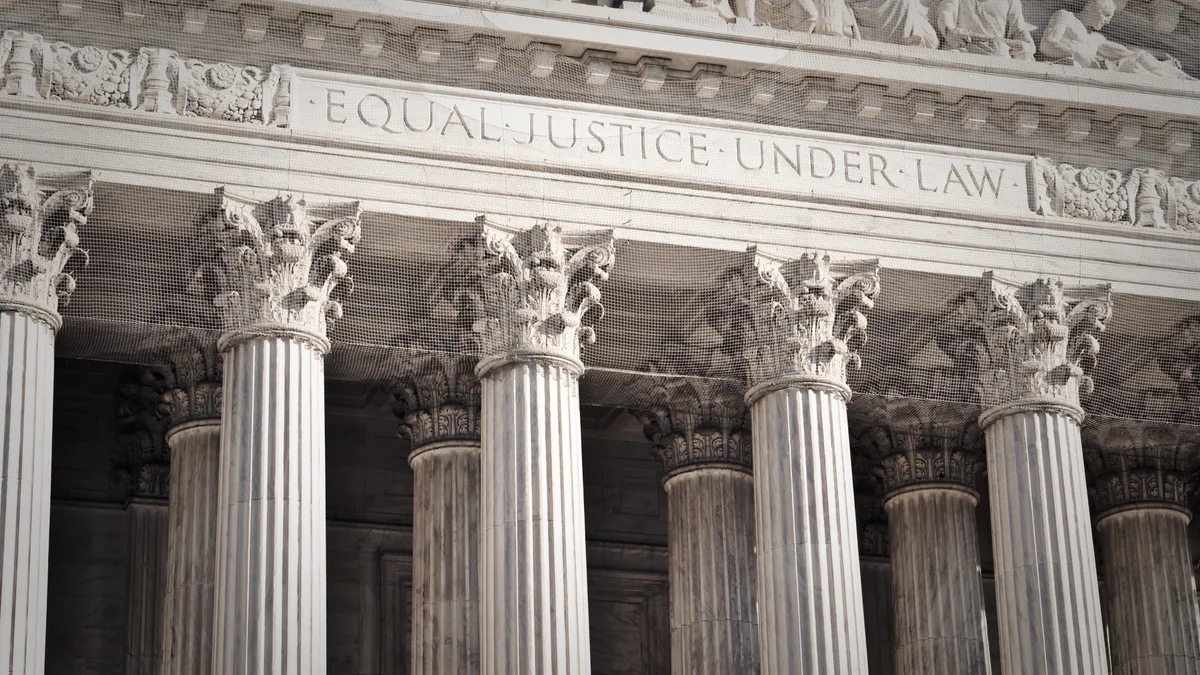Dive Brief:
- The Supreme Court ruled 5-4 on Monday that the president can fire the director of the Consumer Financial Protection Bureau (CFPB) "at will," but the court will allow the bureau to keep operating.
- In Seila Law v. CFPB, a California debt collection law firm argued it should not have to comply with a CFPB civil investigative demand because the bureau's leadership, which could only be removed "for cause," violated the Constitution's separation-of-powers rule.
- "Today's decision wipes out a feature of that agency its creators thought fundamental to its mission — a measure of independence from political pressure," Justice Elena Kagan wrote in dissent.
Dive Insight:
In his ruling, Chief Justice John Roberts wrote the agency's structure rests too much power on one person "who is neither elected by the people nor meaningfully controlled (through the threat of removal) by someone who is."
The leadership structure of the CFPB "has no foothold in history or tradition," Roberts wrote, adding Congress has protected agencies' top officials from being removed in just four "isolated instances": the Comptroller of the Currency for one year during the Civil War, the Office of Special Counsel, the head of the Social Security Administration, and the director of the Federal Housing Finance Agency.
"Aside from the one-year blip for the Comptroller of the Currency, these examples are modern and contested; and they do not involve regulatory or enforcement authority comparable to that exercised by the CFPB," Roberts wrote.
Kagan contested the idea that the bureau's structure violates separation of powers.
"What does the Constitution say about the separation of powers — and particularly about the President's removal authority? (Spoiler alert: about the latter, nothing at all.),” she wrote. "Nowhere does the text say anything about the President's power to remove subordinate officials at will."
The ruling means President Donald Trump can fire CFPB Director Kathy Kraninger at any time — although if Democrat Joe Biden is elected in November, his administration would likely choose a new bureau leader.
Under the 2010 law establishing the bureau, the director is appointed for a five-year term and may only be removed for "inefficiency, neglect of duty, or malfeasance in office."
The debate over the agency's structure intensified last year. The Justice Department filed a brief in September, urging the Supreme Court to take the case. But the most surprising turnabout may have come from Kraninger herself. During her 2018 nomination process, Kraninger said,"the ultimate question of the constitutionality of the Bureau's structure is one for Congress or the courts to resolve." But then-Solicitor General Noel Francisco, in his September 2019 brief, wrote, "the Director has reconsidered that position."
"Litigation over [the CFPB's constitutionality] has caused significant delays to some of our enforcement and regulatory actions," Kraninger clarified in an email to staff later that week. "I believe this dynamic will not change until the constitutional question is resolved either by Congress or the Supreme Court."
The reversal led Sen. Sherrod Brown, D-OH, to "question [Kraninger's] credibility."
"Today's Supreme Court decision finally brings certainty to the operations of the Bureau," Kraninger tweeted Monday. "We will continue with our important mission of protecting consumers with no question that we are fully accountable to the President. Consumers and market participants should understand that the same rules continue to govern the consumer financial marketplace."
The ruling drew fire from the consumer watchdog group Allied Progress. "The CFPB's independence is what allowed it to be a powerful and effective advocate for consumers in the past, but the high court ruled that the agency should instead be guided by the political whims of the President," the group’s spokesman, Jeremy Funk, said in a prepared statement, according to CNBC.














